What Helped My Anxiety During Perimenopause
If you are experiencing anxiety during perimenopause, then you might want to consider some natural supplements to help. This post includes a review of supplements that have helped my anxiety, plus extra information on getting through this unique hormonal phase of life.
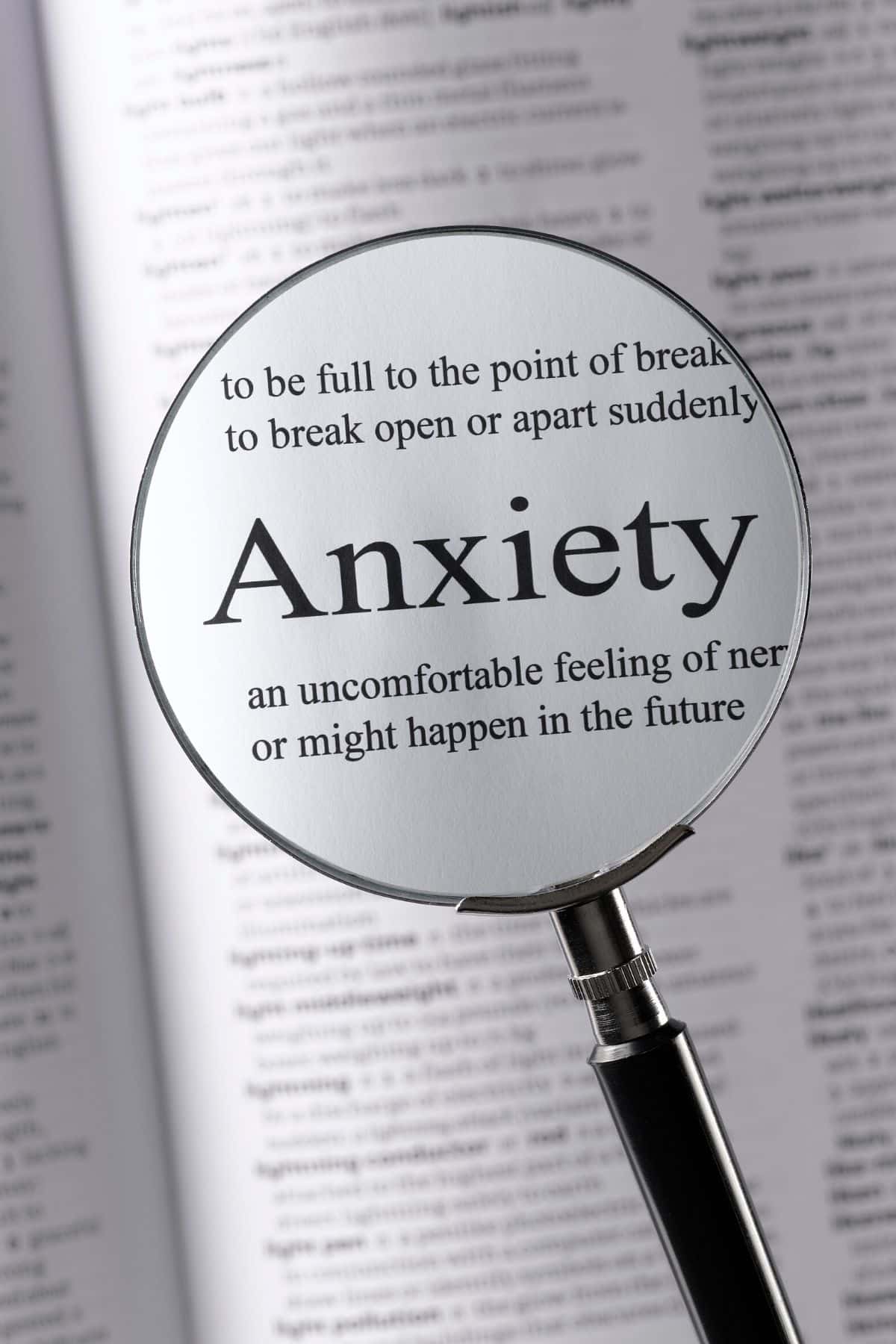
What is Anxiety?
Anxiety is known in our culture as a feeling or feelings of worry, apprehension, and fearfulness. Most people will experience anxious feelings or symptoms of anxiety at some point in their lives because it is a natural response to overwhelming or uncertain situations.
Anxiety and anxiety disorders can be caused by several things. It can occur because of a temporary stressful situation or event. Disturbances in your neurotransmitters can also be the cause of anxiousness.
Anxiety becomes an issue when you feel anxious more than not and it affects your daily life. According to the DSM-V, the diagnostic manual for psychiatrists, feeling anxious most of the time could mean you have Generalized Anxiety Disorder.
Of course, only a medical doctor can diagnose you, but you can try to diminish anxious feelings with natural means including the ones mentioned in this article.
Anxiety and Perimenopause
If you are a female who is in her mid to late 30s through her early 50s, you are likely in the perimenopause phase of life. This means that you are still cycling, but you are getting closer to menopause (the cessation of the menstrual cycle).
Perimenopause can lead to a number of changes, including an increase in anxiety! This can be a result of fluctuating estrogen levels and hormonal changes in general. Other symptoms of this menopausal transition include unexplained weight gain and disruption in sleep quality.
In this article, I’ll share the science-backed supplements that can help with perimenopausal and menopausal feelings of anxiety, plus my personal experience.
As always, please ask your healthcare provider before starting any new supplements.

Supplements That May Help Anxiety
There are several natural supplements, herbal treatments, and micronutrients that have been reported to help diminish feelings of anxiousness, especially during peri-menopause or menopause.
These supplements are best taken alongside a nutrient-dense healthy diet and balanced lifestyle that includes regular exercise and stress management techniques.
And, of course, you should always consult your healthcare provider before making any changes to your supplement routine. It is possible that you may need prescription medications to help get significant improvements or significant reduction in anxiety levels.
If you are currently taking any form of prescription medication or you are pregnant or breastfeeding, you must consult a professional to make sure there are no known problems taking supplements to address anxiety.
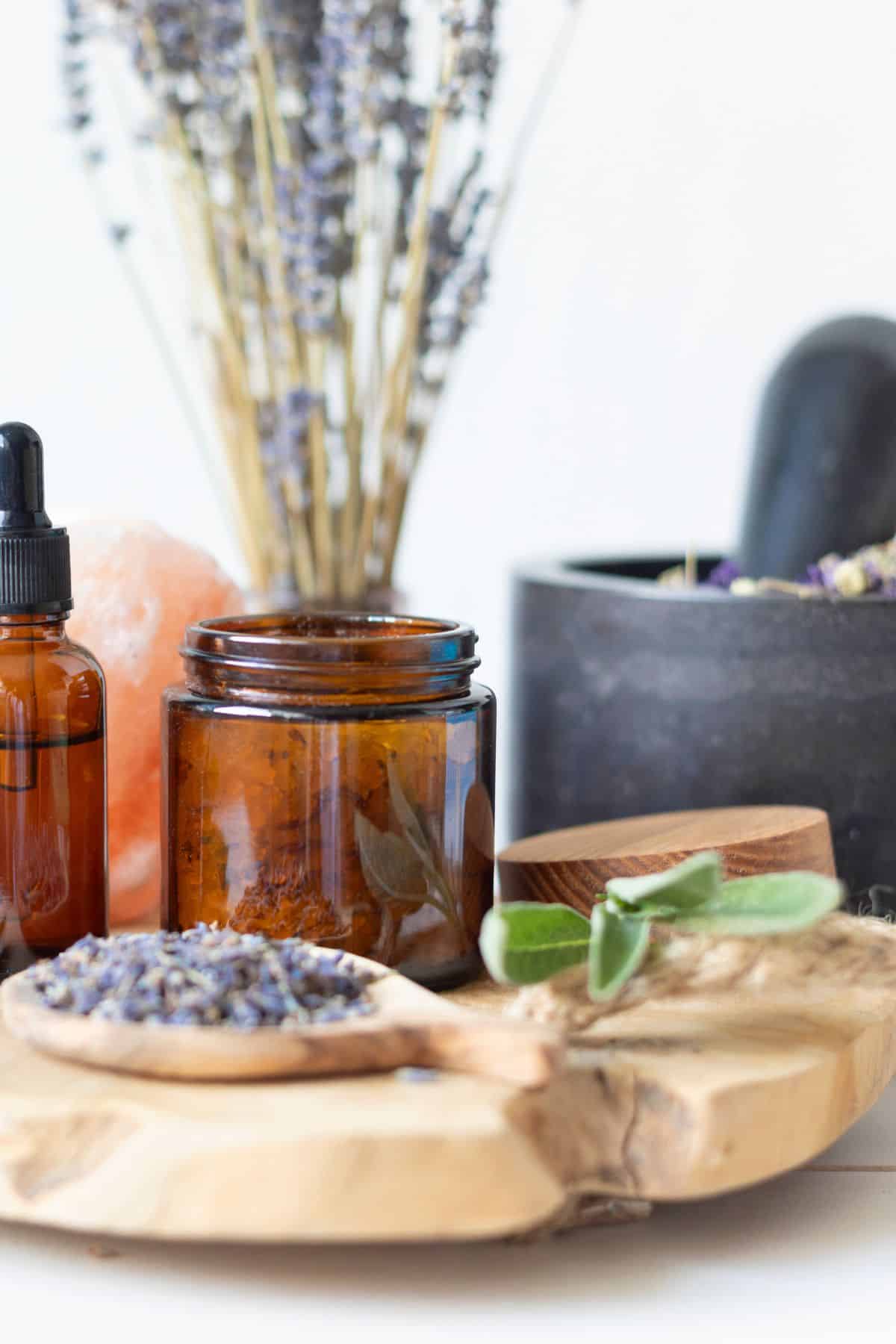
1. 5-HTP
L-5-hydroxytryptophan, called 5-HTP for short, is a nutritional supplement that converts directly into serotonin. Serotonin regulates a lot of functions in the body, including mood, digestion, and sleep. Serotonin is responsible for a sense of well-being and happiness.
People with anxiety (and depression) can be deficient in serotonin, so taking this supplement can help promote a feeling of happiness and diminish anxious feelings. That’s why 5-HTP is considered one of the best supplements for anxiety.
Check with your doctor, but it is usually recommended the 5-HTP be taken in the late afternoon or evening as it can have a calming effect. I usually take it in both the late afternoon and before bed, and it has helped a lot!
2. St. John’s Wort
Hypericum perforatum (St. John’s Wort) is an ancient herbal remedy used for everything from malaria treatment, inflammation, depression, and anxiety. It has been used as a treatment for anxiousness since the year 1525.
St. John’s Wort is preferred over anti-depressant drugs in Europe because it is so effective at treating depression and anxiety. Hypericin and hyperforin are the main antidepressant and anti-anxiety properties in St. John’s Wort. They act similarly to serotonin reuptake inhibitors (SSRIs) by inhibiting serotonin uptake, thereby increasing the concentration of serotonin.
Unlike conventional SSRIs, the hyperforin present in St. John’s Wort actually increases the number of 5-HTP receptors in the brain (this is how it inhibits serotonin uptake.) Increased serotonin can promote happiness and mood regulation.
St. John’s Wort has research showing it is one of the most effective supplements for anxiety during menopause.
Be sure to check with your healthcare provider before taking St. John’s Wort as it can reduce the effectiveness of hormonal birth control and may interact with other medications as well.
This is another one that I have personally taken for several years (perimenopause can last up to a decade!) and it helps with joint pain as well.
3. Valerian Root
Valerian root is an herbal supplement commonly used for treating insomnia. It has a mild sedative effect that can help with relieving tension and anxiety. It has been used to treat sleep issues, nervousness, and tension since the 2nd century.
The valerenic acid in valerian root is responsible for modulating GABA-A ( gamma-Aminobutyric acid) receptors. It inhibits enzymes that would otherwise destroy GABA which boosts mood and promotes relaxation.
Valerian root can reduce feelings of anxiety and depression; can improve insomnia. In one study, valerian root was shown to improve anxiety symptoms even more than St. John’s Wort.
Unless you get differing recommendations from your doctor, Valerian Root should only be taken at bedtime since it can cause drowsiness.
4. Passion Flower
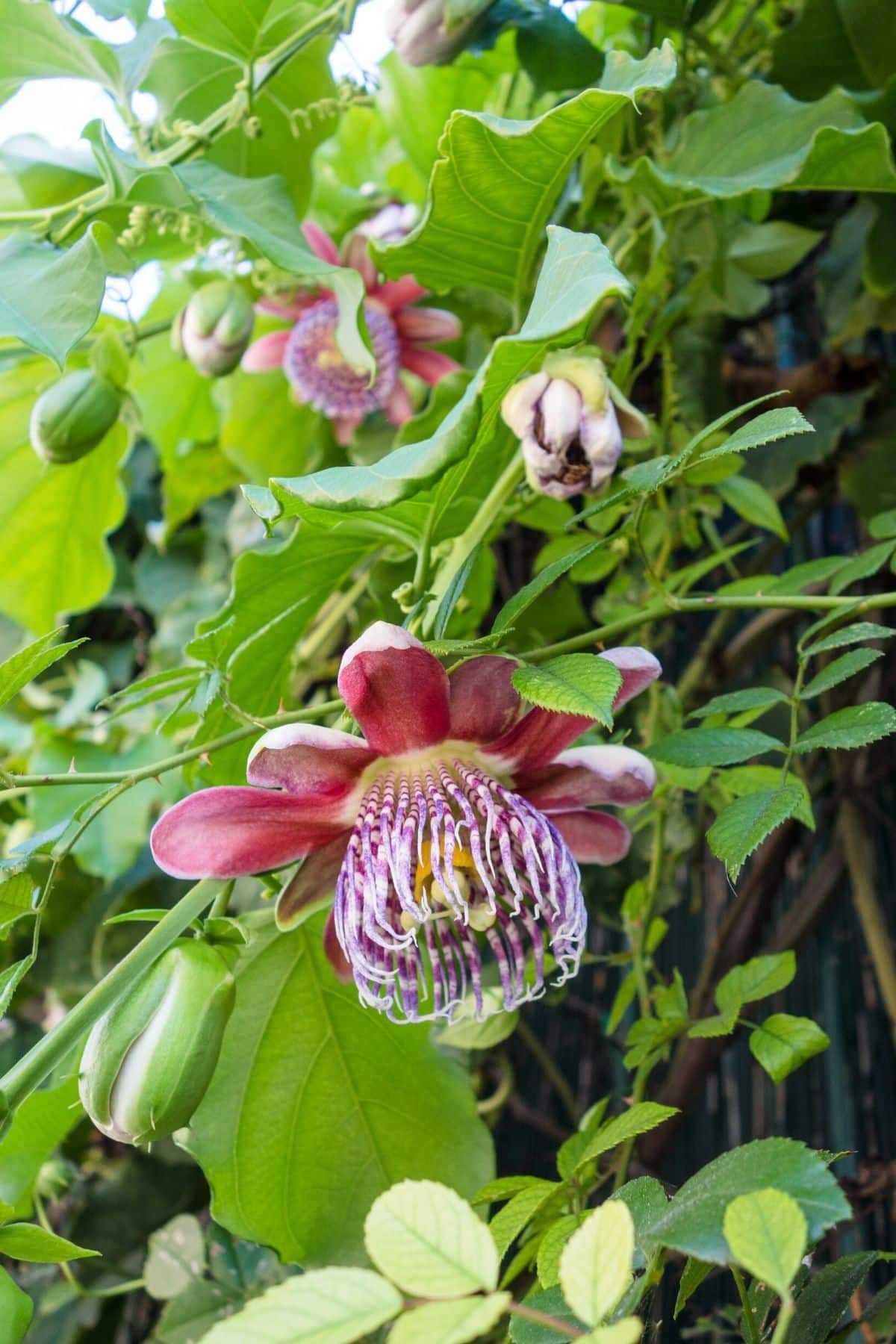
Passion flower is a colorful flower used to treat sleeplessness and anxiety. It’s been used as a mild sedative since the 16th century.
The exact active compound in passionflower isn’t easily identified. However, it has been shown to be as effective as benzodiazepines in treating mood disorders like anxiousness.
I take passionflower as needed, but not every night.
5. Kava Kava
Kava kava is a plant traditionally used to treat anxiety, pain, and spasms including menstrual cramps. Kava kava can reduce feelings of anxiety without drowsiness, making it an effective supplement for anxiety.
The kawain and dihydrokawain in Kava kava help reduce anxiousness in various ways. Mostly, they enhance the effectiveness of Gamma-Aminobutyric acid (GABA-A) receptors and inhibit uptake, meaning your brain has a higher concentration of GABA-A available.
GABA-A is responsible for relaxation and mood regulation. Kava kava may also enhance dopamine activity in certain doses, causing a slight euphoric effect. Kava kava has been shown to reduce anxiety in perimenopausal women, but you should ask your doctor about its long-term safety before using.
I have only taken this one in a tincture with other herbs, but it seems to be effective for me.
6. Ashwagandha
Withania somnifera, also known as ashwagandha, is a popular adaptogenic herb used to treat anxious feelings and stress. It is an adaptogen, meaning it interacts with your body in a unique way to provide what your body needs.
Ashwagandha primarily works by interacting with the hypothalamus-pituitary-adrenal axis. It can help reduce cortisol levels, helping you react to stress better.
There are limited studies on ashwagandha, but several have found that the herb significantly reduced feelings of stress and anxiety when compared to placebos. It can also help reduce hot flashes.
It may also help with PCOS! See my full article on PCOS and adaptogens.
7. Black Cohosh
Black cohosh (Actaea racemosa or Cimicifuga racemosa) is a herb that has been traditionally used for various women’s health issues, including symptoms associated with menopause and perimenopause, such as hot flashes, vaginal dryness, night sweats, mood swings, and anxiety.
I have not personally tried this one, but I heard good things about it.
Bonus Recommendations
- Magnesium is another basic mineral supplement that can help with managing anxiety at almost any stage of life, not just perimenopause. Learn more about magnesium supplements as most people do not get enough magnesium from the diet. Magnesium is also on my list of the best vitamins for women over 30 and best vitamins for women over 50. It may also help reduce bone loss when combined with calcium supplements.
- You may also want to consider probiotics if you are experiencing anxiety. This is because your gut health impacts your mental health! See my related articles about the best dairy-free probiotics and the best probiotic foods.
- There are other dietary supplements and herbs that are often recommended for postmenopausal women. The effects of these menopause supplements may not be targeted at anxiety, but they may be worth considering for other symptoms. These include: red clover, dong quai, primrose oil, essential oils, and wild yam.
- Lastly, you may want to consider hormone therapy such as bioidentical progesterone to help increase hormone levels of progesterone. This has been shown to help reduce anxiety, plus it can also help reduce breast cancer risk and improve energy levels. I have personally used oral micronized progesterone to help manage perimenopausal symptoms and it has been a game-changer!
FAQs
A poor diet can cause mental health issues at any stage of life. Deficiencies in several nutrients including B vitamins and low fatty acids have been linked to anxiety. Eating a balanced diet with plenty of each macronutrient and all of the micronutrients is essential for mental wellbeing. See my recommendations for the best supplements for women.
Anxiety may be treated with conventional pharmaceuticals such as SSRIs and benzodiazepines. Certainly, some people need these medications at times and only you and your doctor can make that decision.
If you choose the natural route, though, you can supplement with herbs and neurotransmitter precursors, assuming it is appropriate for you. But, always consult with a healthcare provider before starting any new supplements.
Like most mood disorders, anxiety can be treated until it no longer has a harmful effect on your life. It’s best to take a varied approach to treating anxiousness. Treatment will look different for everyone. Many people find that a regular meditation practice helps reduce feelings of anxiety.
For others, meditation can increase feelings of anxiousness because they find it too difficult to clear their mind. Traditional sitting meditation is not the only way to meditate. If you find sitting still too difficult, try yoga, mantras, or guided meditations. Do what feels best for you.
Certain foods may influence your mood negatively and cause anxious feelings. These are some foods you may try eliminating for anxiety including caffeine, simple carbs, alcohol, and fast food.
Don’t Miss These Holistic Health Topics
Conclusions
There are no one-size-fits-all solutions to managing or resolving feeling of anxiousness, especially during perimenopause or menopause. As long as the feeling is mild, you can try using natural methods to address it. If it starts to overcome your life, then you should consult a healthcare professional to see if supplements or medication would be best for you.
Don’t forget to join my newsletter list to get exclusive clean eating recipes and tips. The newsletter is 100% free with no spam; unsubscribe anytime.
About the Author: Carrie Forrest has a master’s degree in public health with a specialty in nutrition and is a certified holistic nutritionist. She is a top wellness and food blogger with over 5 million annual visitors to her site. Carrie has an incredible story of recovery from chronic illness and is passionate about helping other women transform their health. Send her a message through her contact form.
Note: this post is for informational purposes only and is not intended as medical advice. Please consult your healthcare provider for recommendations related to your individual situation.


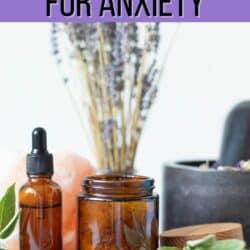
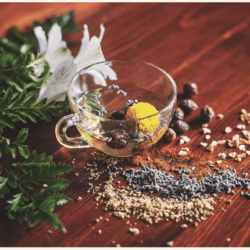
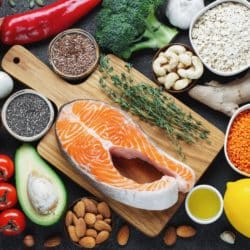

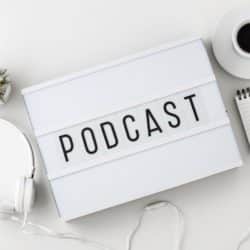



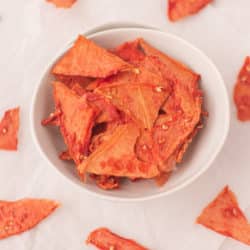

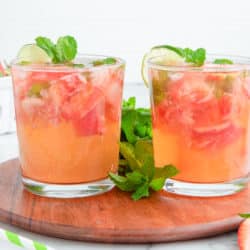
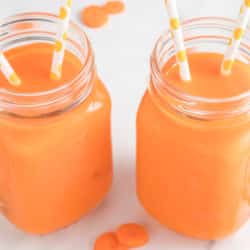







I have stage 3 CKD. Is Ashwaghanda safe for kidney pts.?
You need to ask your healthcare provider about this.
I have used some of the supplements on your list but 2 I found so helpful that are missing from your list is inositol and l-theanine. L-theanine especially for the caffeine induced anxiety. I don’t consume much caffeine- I use it when needed but sometimes us causes anxiety. Inositol powder in a glass of water works within minutes for me!
Of all the many sites that provide information about health I love yours the most. You set a great example and inspire others in a gentle way. I trust your education and advice because I know much of it has been personally verified through practice. i just wanted to thank you for the wonderful service you provide those of us who simply don’t have the time to research the subject of good health, but need the information. Wish you a happy Christmas season and great New Year!
Hi Yvonne, thank you for such a wonderful message. I am so grateful for your trust and readership and I wish you the very best for a wonderful holiday season and New Year too! XOXO.